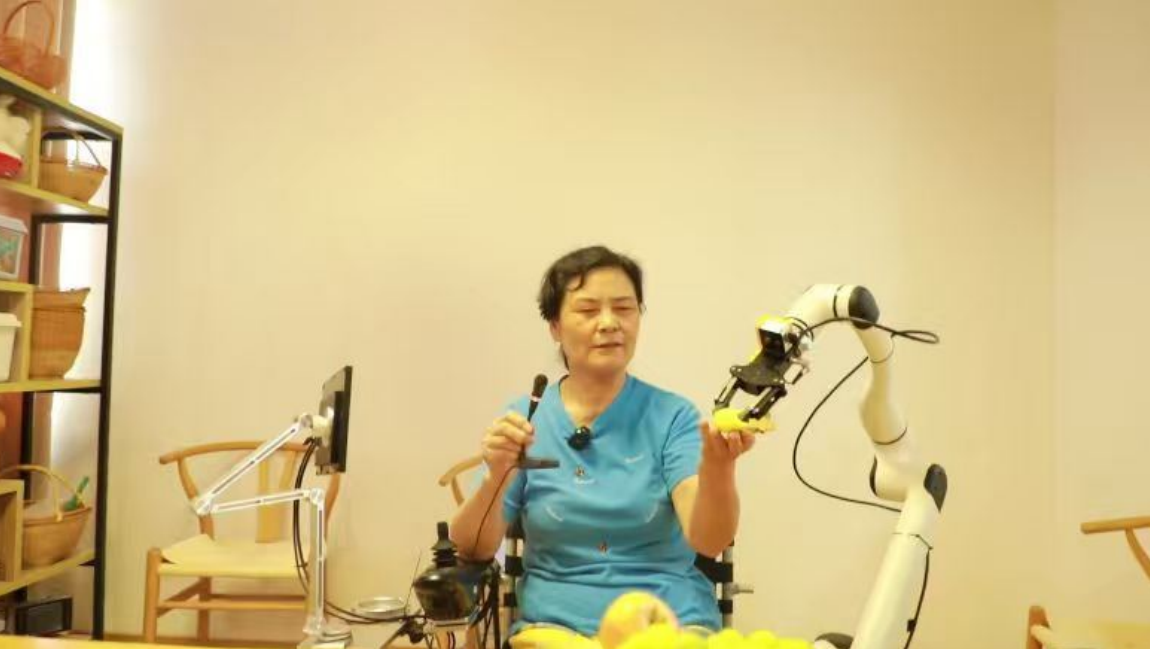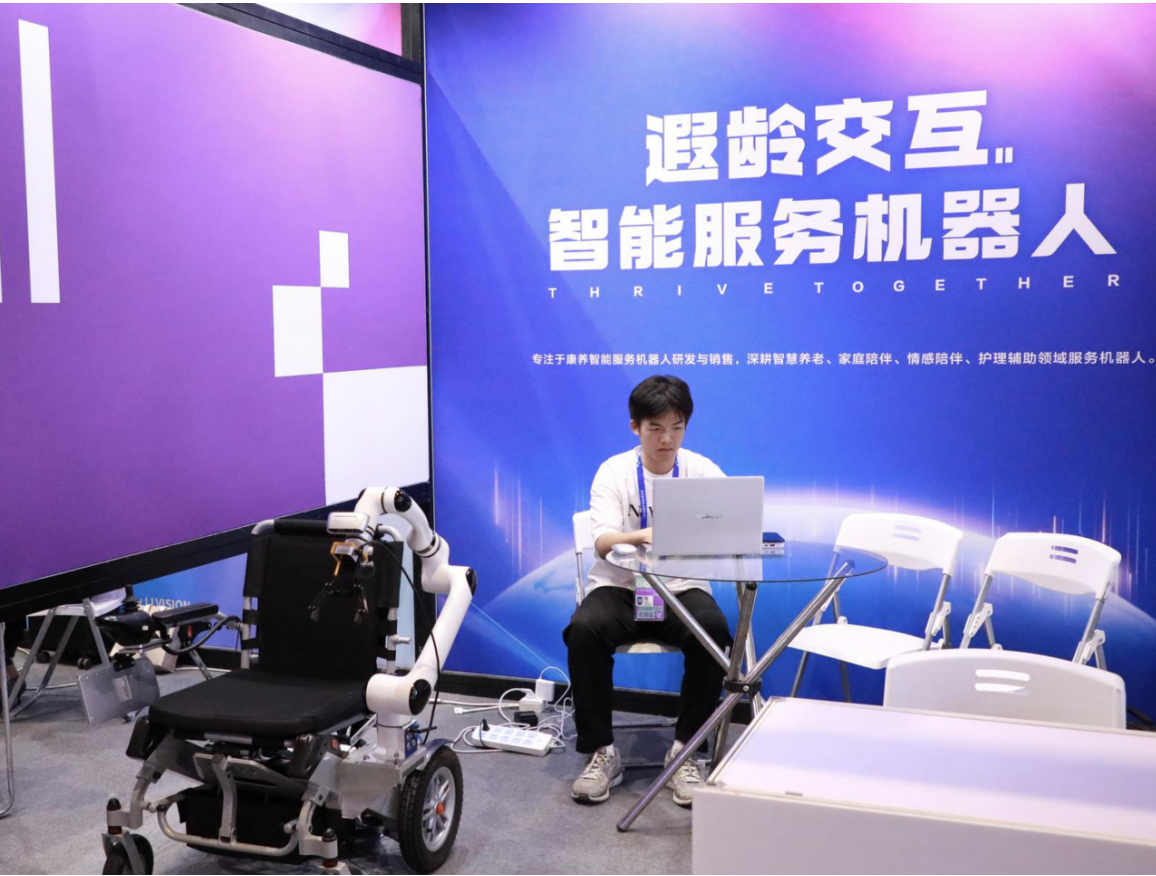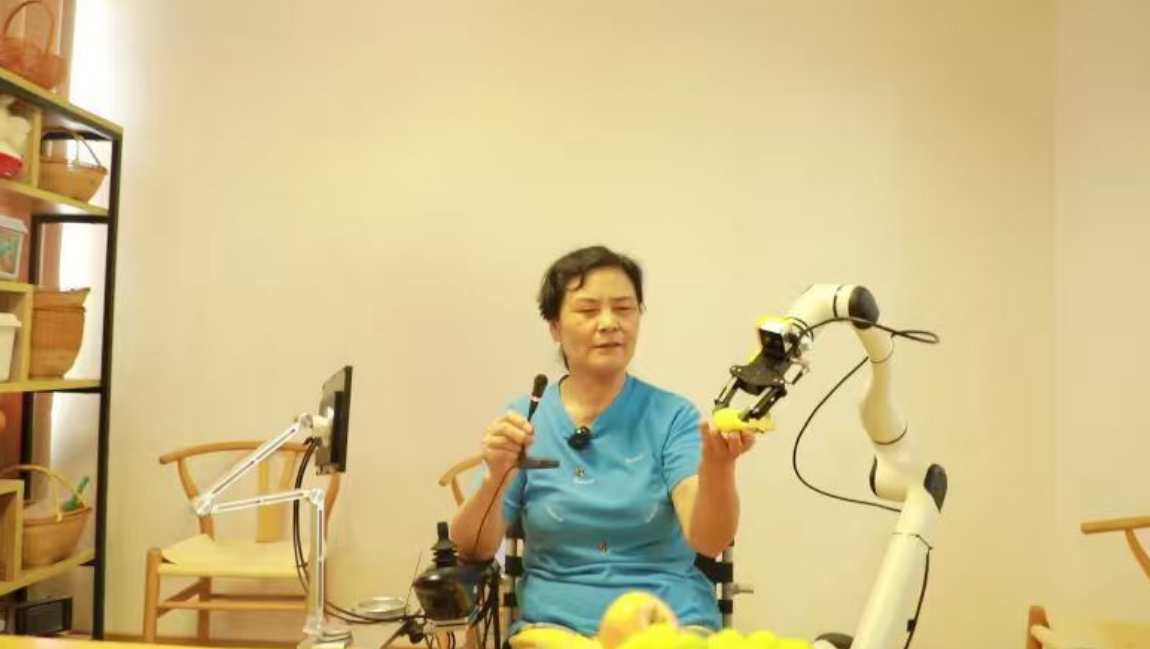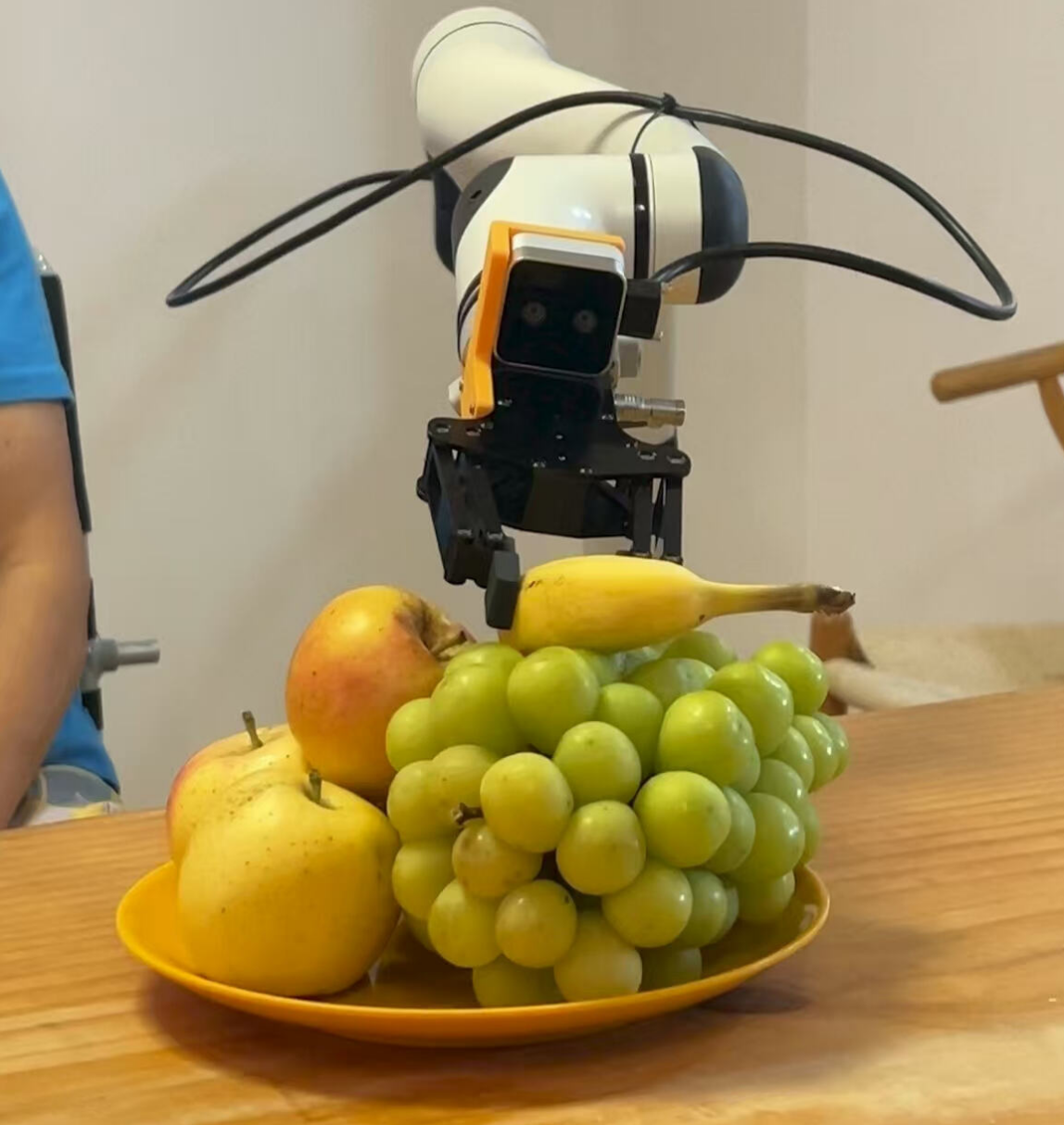On September 4th, a "new friend"—the smart elderly care robot "Phibo"—arrived at the street elderly care home in Xihu District, Hangzhou. This robot is shaped like a wheelchair and can help the elderly with daily life via a voice-controlled robotic arm.
"Please get me a banana," said Aunt Zha from the elderly care home. The robotic arm on the smart elderly care wheelchair started to move, accurately grabbing a banana from the fruit plate on the table in front of her. It turned slowly and handed the banana to Aunt Zha.
"It’s really amazing. Robots are developing so fast now. You just need to open your mouth and they’ll help you get things—it’s especially friendly for elderly people with limited mobility," Aunt Zha exclaimed.

The reporter learned that this smart elderly care wheelchair, the first of its kind launched nationwide by Hangzhou Xialing Interactive Intelligent Robot Co., Ltd., has been put into use at this elderly care home.
Through its voice interaction system, the robotic arm mounted on the wheelchair can automatically recognize objects. It helps the elderly pick up more than 80 types of daily items, such as water cups, remote controls, and fruits, and can also assist them in pressing elevator buttons. In the past, when elderly people in wheelchairs took the elevator, they couldn’t stand up to press the buttons due to limited mobility. Now, with the help of the robotic arm on the wheelchair, they only need to say "Help me press the down elevator button," and the robotic arm will automatically complete the operation, making the elderly’s travel more independent and convenient.
Guo Yuchen, CEO of Hangzhou Xialing Interactive Intelligent Robot Co., Ltd., told the reporter that this smart elderly care wheelchair integrates robotic arm technology with traditional wheelchairs for the first time. Equipped with a high-precision robotic arm and an object recognition system, it can understand the elderly’s instructions and accurately grab daily items, providing tangible convenience for the elderly with limited mobility in their daily lives.
Currently, several other elderly care intelligent robots have completed research and development and will soon be launched on the market.
One is "Rouqing"—a humanoid robot equipped with a flexible arm. It can perform functions such as patrolling the elderly care home, conducting daily health checks for the elderly, and interacting with them. The other is the portable "Shibao," which looks like a small doll and can be attached to a bag. It has functions such as positioning and emotional communication. Both are expected to be put into market use by the end of the year. In addition to elderly care homes, such robots are also suitable for home-based elderly care.
Guo Yuchen, who has been in the home care and elderly care industry for many years, believes that the human-machine collaborative care model will become the norm in the future: robots will handle repetitive tasks, while caregivers will focus on emotional care, jointly building a warmer elderly care environment.


